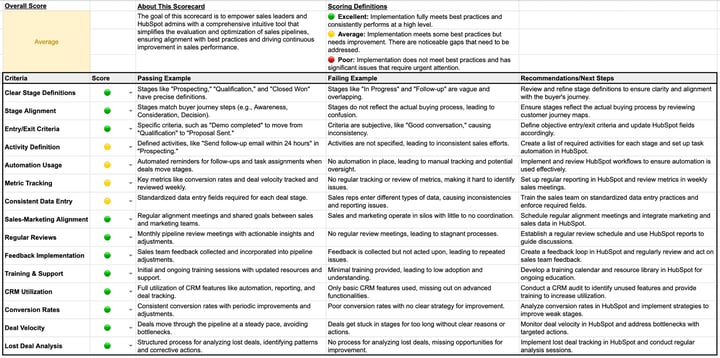The Ultimate Guide to Revenue Operations: Optimizing Your Business for Growth
What is Revenue Operations and Why is it Important?
Revenue operations, or RevOps, is a relatively new concept in the business world. It refers to integrating sales, marketing, and customer success teams to streamline the revenue generation process. RevOps aims to create a more efficient and effective revenue generation process by breaking down silos between departments and aligning everyone around a common goal.
In today's fast-paced business environment, companies need to be agile and adaptable to stay competitive. Revenue operations is a way to achieve this by creating a more collaborative and data-driven approach to revenue generation. By bringing together sales, marketing, and customer success teams, companies can gain a more holistic view of their customers and create a more seamless customer experience.
The Benefits of Revenue Operations
There are several benefits to implementing a revenue operations strategy in your business. One of the most significant benefits is increased revenue. By breaking down silos between departments and aligning everyone around a common goal, companies can create a more efficient and effective revenue generation process. This can lead to increased sales and revenue growth.
Another benefit of revenue operations is improved customer experience. By bringing together sales, marketing, and customer success teams, companies can gain a more holistic view of their customers and create a more seamless customer experience. This can lead to increased customer satisfaction and loyalty.
Revenue operations can also lead to improved data management and analysis. By integrating sales, marketing, and customer success data, companies can gain a more comprehensive view of their customers and make more informed decisions. This can lead to improved marketing campaigns, better sales strategies, and more effective customer success programs.
How to Implement Revenue Operations in Your Business
Implementing a revenue operations strategy in your business requires a significant shift in mindset and culture. It requires breaking down silos between departments and aligning everyone around a common goal. Here are some steps you can take to implement revenue operations in your business:
1. Define your revenue operations strategy:
Start by defining your revenue operations strategy. This should include your goals, objectives, and key performance indicators (KPIs). It should also include a plan for how you will integrate sales, marketing, and customer success teams.
2. Align your teams:
Once you have defined your revenue operations strategy, you need to align your teams around a common goal. This requires breaking down silos between departments and creating a culture of collaboration and communication.

3. Implement a data management system:
To effectively implement revenue operations, you need to have a data management system in place. This should include a customer relationship management (CRM) system, marketing automation software, and customer success tools.
4. Analyze your data:
Once you have a data management system in place, you need to analyze your data to gain insights into your customers. This can help you identify trends, patterns, and opportunities for growth.
5. Continuously improve:
Revenue operations is an ongoing process. You need to continuously analyze your data, refine your strategy, and improve your processes to stay competitive.
Common Challenges in Implementing Revenue Operations
Implementing a revenue operations strategy in your business can be challenging. Here are some common challenges you may face:
1. Resistance to change:
Implementing revenue operations requires a significant shift in mindset and culture. Some employees may be resistant to change, which can make it difficult to implement a new strategy.
2. Lack of alignment:
Revenue operations require alignment between sales, marketing, and customer success teams. If these teams are not aligned, it can be challenging to implement a revenue operations strategy.
3. Data management issues:
Revenue operations require a comprehensive data management system. If your data is not accurate or up-to-date, it can be challenging to gain insights into your customers.
4. Lack of resources:
Implementing revenue operations requires resources, including technology, personnel, and training. If you do not have the resources to implement a revenue operations strategy, it can be challenging to achieve your goals.
Case Studies of Successful Revenue Operations Strategies
Many companies have successfully implemented revenue operations strategies in their businesses. Here are some case studies of successful revenue operations strategies:
1. HubSpot:
HubSpot is a marketing automation software company that has successfully implemented a revenue operations strategy. They have integrated their sales, marketing, and customer success teams to create a more efficient and effective revenue generation process. This has led to increased revenue growth and improved customer experience.
2. Salesforce:
Salesforce is a customer relationship management (CRM) software company that has also implemented a revenue operations strategy. They have integrated their sales, marketing, and customer success teams to create a more holistic view of their customers. This has led to improved marketing campaigns, better sales strategies, and more effective customer success programs.
3. Adobe:
Adobe is a software company that has implemented a revenue operations strategy to improve their customer experience. They have integrated their sales, marketing, and customer success teams to create a more seamless customer experience. This has led to increased customer satisfaction and loyalty.
Revenue operations as a part of your strategy
Revenue operations is a powerful strategy for businesses looking to improve their revenue generation process. By integrating sales, marketing, and customer success teams, companies can create a more efficient and effective revenue generation process. This can lead to increased revenue growth, improved customer experience, and more informed decision-making.
Implementing a revenue operations strategy requires a significant shift in mindset and culture. It requires breaking down silos between departments and aligning everyone around a common goal. However, the benefits of revenue operations are significant and can help businesses stay competitive in today's fast-paced business environment.
If you are considering implementing a revenue operations strategy in your business, start by defining your strategy, aligning your teams, implementing a data management system, analyzing your data, and continuously improving your processes. With the right strategy and mindset, revenue operations can help your business achieve its goals and stay competitive in today's market.
Get in touch if you'd like to talk about your revenue operations strategy






